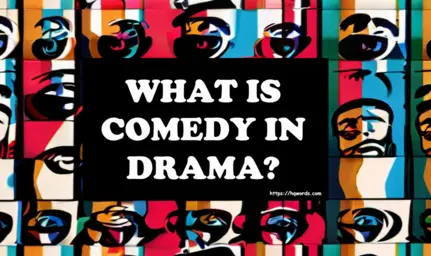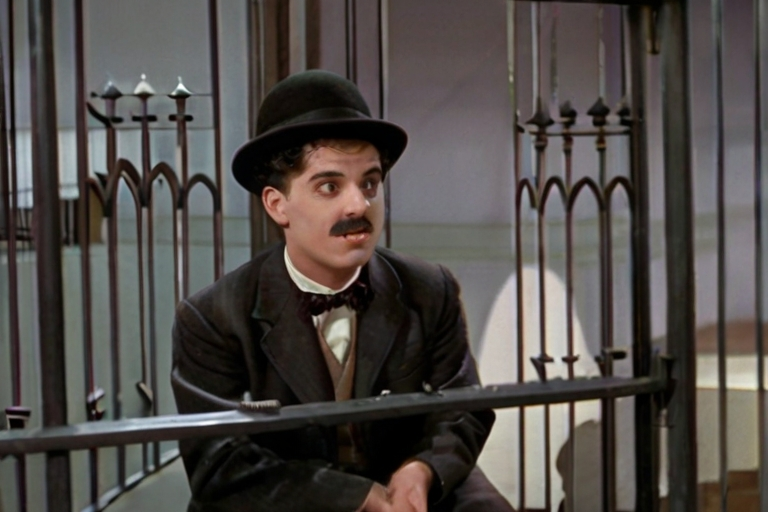What is Comedy in Drama? (Meaning, Functions, and Types)
In this article, you will understand the meaning of comedy in drama, and learn about the history of comedy. Find out the different types of comedy, and how comedy has developed.
by Nsikak Ekikor

Comedy in drama involves making people laugh with funny jokes in order to entertain an audience. A comedy was a stage play with a happy ending in ancient Greece and Rome.
The term was expanded in the Middle Ages to include narrative poems with happy endings and lighter themes.
READ ALSO:
- Daddy’s Little Girl 2 – Letter to Parents
- The Tortoise And The Feast in Heaven
- Why The Tortoise And The Squirrel Are Not Friends
What is the Meaning of Comedy
The term “comedy” is derived from the French word “comdie,” which is derived from the Greeco-Latin word “Comedia.”
Comedia is made up of two words: komos, which means “to revel,” and aeidein, which means “to sing.”
The Oxford Advanced Learner’s Dictionary defines comedy as “a branch of drama dealing with everyday life and humourous events.”
It also refers to a lighthearted and entertaining type of theatre. A comedy is a play that has a happy ending.
Function of Comedy
Though comedy serves many purposes, the most important and visible function of comedy is to entertain readers.
The reader is forced to laugh at the foibles of the comedy’s various characters. As a result, he is overjoyed and forgets about his mundane life.
In other words, comedy is an artificial play whose main purpose is to draw attention to what is wrong with the world.
Comedy, however, is a scourge of folly and vice. A comedy contains no contempt or anger. Comedy exposes and mocks stupidity and immorality, but without the reformer’s wrath.
Kinds of Comedy
There are different kinds of comedy, some of them are:
Classical Comedy
Classical comedy is a kind of comedy, wherein the author follows the classical rules of ancient Greek and Roman writers.
It is modelled upon classical comedies like Plautus Terence and Aristophanes. The most important classical rules are:
‣ The Three Unities of Time, Place and Time
‣ Separation of comic and tragic elements i.e., comedy is comedy and tragedy is tragedy having no other element from each other. There is no mingling of comic and tragic elements in a classical comedy.
‣ The aim of classical comedy is satiric in nature. It does not only aim at providing entertainment, rather, but it also aims at correcting society.
Romantic Comedy
Romantic comedy is a type of comedy in which the playwright deviates from traditional comedy conventions.
The writer is mostly concerned with his imagination’s plight and writes what he thinks. Unlike classical comedy, which includes only comic elements, there is a mingling of comic and tragic elements.
The three unities are scattered in the wind. Its goal is not to be didactic or moral. Its primary function is to entertain the readers. Shakespeare’s comedies are romantic in nature.
Comedy of Humours
A comedy of humour is a type of comedy in which the author focuses on a specific characteristic of a character.
A specific character trait, such as avarice or pride, is referred to as humour. The ancients thought the human body was made up of four elements: air, fire, water, and earth. Humour is defined as an excess of any of these elements.
It was assumed that each element represents a specific trait of human characters, such as fire representing an ill-tempered nature, water representing a cold temperament, earth representing a down-to-earth nature, and air representing a lofty or showy temperament of a human being.
The comedy of humour satirizes contemporary society’s idiocies and idiosyncrasies, flaws and evils, and his satire is generally abrasive and biting.
Comedy of Manners
A comedy of manners is a play about society’s elite class and their manners. It is satirical in nature, similar to comedies of humour.
Its main goal is to bring about reforms in his era’s society. Such plays were popular during the Restoration period.
Examples include Sheridan’s The Rivals and Congreve and Oliver Goldsmith’s plays.

Comedy of Errors
It is a comedy in which the author dwells on the mistakes of the characters. Every character is unaware of what is happening.
The error was mostly caused by misidentification and other factors. It was brought from Rome. Terrence wrote such plays during the Roman era.
The plot of Comedy of Errors revolves around sea-sorrow, twin separation, and mistaken identity. The mystery is completely resolved by the end of the play, and everyone is aware of the true situation.
Twelfth Night by Shakespeare is an excellent example in this regard, as it deals with mistaken identity.
Sentimental Comedy
It is a type of comedy in which the author focuses on the characters’ sentimental and emotional traits.
It is worth noting that this type of comedy developed in response to the 18th-century Comedy of Manners.
Richard Steele, Hugh Kelley, and others wrote such comedies. However, the sentimental comedy faded into the background, and the comedy of manners was resurrected.
Comedy of Intrigues
It is a type of comedy in which the plot and intrigues take precedence over the characters. It was imported from Spain because it was extremely popular there. The comedy of intrigues gained popularity during Dryden’s time.
READ ALSO:
- Song of a Girl Going to Bathe
- Writing Tips To Guide Your Writing Journey
- Life is a Place Where it’s Forbidden to Live
We believe the above piece of information on what is comedy in drama, was successful. Please, kindly share this content on all the available social media platforms.
